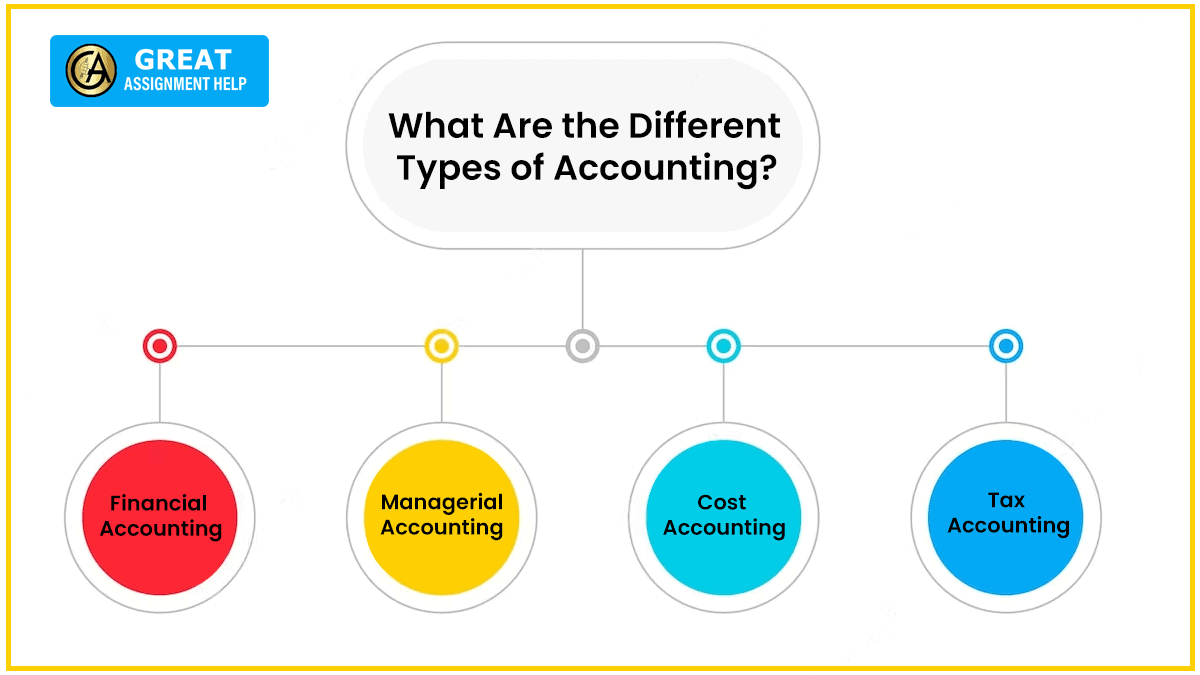Accounting is essential for businesses to track their financial performance. Some major uses of accounting include preparing budgets, financial statements, and tax returns. It also helps businesses make smart decisions that enable them to plan for the future and drive growth and profitability.
Accounting is the method of keeping evidence of financial transactions related to a business. The accounting method incorporates summing up data, examining, and reporting these transactions to oversight agencies, controllers, and tax collection bodies. The financial statements utilized in accounting are a short outline of financial transactions over an accounting period, recapitulating a company’s operations, financial position, and cash flows. With passing days, the uses of accounting are becoming more crucial. But it can be quite difficult to gauge the uses of accounting in a company for people who do not have a background in accounting or for students who are still new to the subject. If you are intrigued to learn more details about the uses of accounting, its purpose, standards, history, and careers in accounting, read this blog. You can get details on these subjects and many more topics related to the implications of accounting.
Purpose of Accounting
Accounting is one of the primary functions of almost any business. A bookkeeper or an accountant must deal with the accounts at a small organization or in sizable finance departments with hundreds of employees at larger corporations. There are several uses of accounting reports generated by several accounting branches, like cost accounting and managerial accounting. These reports are priceless to the company’s management. It helps them make informed business decisions.
History of Accounting
Accounting has been there in the world for as long as there have been transactions, whether in the form of money or barter systems. The history of accounting dates back to the earliest civilizations in Mesopotamia, Egypt, and Babylon. For example, during the reign of the Roman Empire, the government had comprehensive records of its finances. However, contemporary accounting as an occupation has only been here since the early 19th century.
Luca Pacioli has made significant contributions to the growth of accounting as a profession. Therefore, he is called “The Father of Accounting and Bookkeeping”. An Italian mathematician, Pacioli, published a printed volume on the double-entry method of bookkeeping in 1494. However, merchants required some institutions to track their accounting records and sought to avoid bankruptcy. This led to a huge industrial revolution and the development of the Institute of Chartered Accountants in England and Wales. By 1880, the modern profession of accounting was completely developed and acknowledged by the Institute of Chartered Accountants in England and Wales. This institution developed many accounting systems that are in practice today
The Alliance for Responsible Professional Licensing (ARPL) was built in August 2019 about a sequence of state deregulatory proposals making the requirements to become a Certified Public Accountant more easygoing. The ARPL is an alliance of different sophisticated professional groups. It includes engineers, accountants, and architects.
Also Read: Understand the Difference Between Bookkeeping and Accounting
Different Types of Accounting

Accountants may have to look after several uses of accounting, from recording precise transactions to functioning with specific sets of data. For this reason, there are more than a few wide groups that most accountants can be grouped into.
Financial Accounting
Financial accounting is the method of generating short-term and annual financial statements. The consequences of all financial transactions that take place during an accounting period are summed up in the balance sheet, income statement, and cash flow statement. Certified Public Accountant firms annually review the financial statements of most organizations.
Some public limited organizations require auditing their firm’s accounts at least once a year. Moreover, yearly external audit reports are a typical requirement for lenders to develop their debt agreements. Therefore, most companies conduct annual audits for one reason or another.
Also Read More: Top Highest-Paying Finance Jobs in 2024
Managerial Accounting
Managerial accounting requires similar data to financial accounting. However, the arrangement and uses of accounting information are completely different. For example, managerial accounting produces monthly or quarterly reports. A business’s management team can utilize this data to decide on the business operations. Managerial accounting also includes many other aspects of accounting. It includes budgeting, forecasting, and various financial analysis mechanisms. Essentially, any data that may be helpful to management comes under this umbrella.
Cost Accounting
Just like managerial accounting assists businesses in making management decisions, cost accounting helps businesses make decisions about costs. Essentially, cost accounting takes into account all of the costs related to the development of a product. Analysts, managers, business owners, and accountants use this data to establish what their products should cost. In cost accounting, money is considered an economic factor in production.
Tax Accounting
While financial accountants often employ a series of rules to state the financial position of a company, tax accountants often use a diverse set of rules. These rules are developed at the federal, state, or local level based on the type of return that is being filed. Tax accounts balance fulfillment with reporting rules as they also try to reduce a company’s tax liability with the help of considerate strategic decision-making. A tax accountant often supervises the following:
- The entire tax process of a company
- The strategic development of the organization chart
- The operations
- The compliance
- The reporting
- The allowance of tax liability
Also read: Excellent Accounting Research Topics For You to Consider
What are the uses of accounting?
The uses of accounting include the complete tracing, storing, recording, examining, curbing, and treatment of a company’s financial transactions. Through the functions of the accounting department, the company can preserve a fiscal history that makes it easy to conduct audits. There are several other uses of accounting history. It includes: developing reports, setting budgets, lowering costs, enhancing profits, availing of growth opportunities, analyzing future expenditure needs, and making financial predictions.
However, the fundamental functions of accounting in an organization may incorporate the following:
1. Maintaining financial records
Accounting Assignment Help businesses preserve an accurate and the latest record of the everyday financial transactions of the company. The most common of them include supply purchases, product sales, receipts, and payments.
2. Checking financial transactions
Accountants may follow multiple financial dealings concerning payments of the company. It helps to ensure that the company picks up the revenue and stays profitable.
3. Making bill payments
The other most common uses of accounting involve scrutiny of invoices to ensure the legality of the charges, setting payment dates, and paying the bills that the company is indebted to various sellers and suppliers.
4. Disbursing employee salaries
Companies can utilize accounting to make payroll payments from company funds, utilize employee benefits, and give out employee work-related bonuses.
5. Observing digital records
Accounting may include generating, upholding, and keeping informed of digital accounting systems to track and analyze the company’s financial data.
6. Composing financial reports
Accounting includes preparing thorough quarterly and annual financial reports concerning the company’s assets, profits, and losses for internal and external collaborators.
7. Upholding fiscal history
Accountants help with developing, recording, and storing the financial history of the company’s dealings and making it obtainable for audits and assessments.
8. Attaining business goals
An accountant can examine financial data to develop and put into practice exhaustive financial policies and strategies to move forward with the company’s business goals.
9. Creating budgets
The accounts department may source the company’s financial data to arrange the general company budget, the subdivision budgets, and the project budgets.
10. Making financial plans
Accounting involves examining the company’s obtainable financial resources, predictable revenues, and business goals. It utilizes this information to forecast potential business expansion and growth.
Also read: Impactful Financial Dissertation Topics for You to Explore and Write
11. Auditing funds
Accountants may carry out financial audits of the organization, recognize accounting inconsistencies, and put into practice corrective solutions.
12. Examining financial resources
Companies can utilize accounting to spot the financial weaknesses and strengths of the company, determine the methods of overcoming drawbacks and advancing strengths, and put into practice appropriate strategies.
13. Evaluating performances
Accounting includes carrying out a systematic financial evaluation of the organization’s departments to examine their functioning and make alterations to minimize waste, enhance productivity, and rationalize expenses.
14. Obeying legal requirements
Accountants ensure the company meets the terms of the industry and government rules, rules, and strategies connected to taxation, financial reporting, and employee wages.
15. Averting mismanagement
The accounting department can maintain accurate records of the company’s financial dealings to ensure no mismanagement or wastage of money takes place within the organization.
16. Maintaining vigilance against fraud
Accounting includes applying effective security measures to safeguard the company’s assets against data infringement and internal and external fraud.
Career Opportunities for Accounting
While a bookkeeper can deal with the basic uses of accounting, competent accountants who have designations like Certified Public Accountant (CPA) or Certified Management Accountant (CMA) handle advanced accounting in the United States.
In Canada, accountants usually work under the “Big Four” accounting organizations. It falls under the legacy designations, the Chartered Accountant (CA), Certified General Accountant (CGA), Certified Management Accountant (CMA and Chartered Professional Accountant (CPA). These accounting organizations perform several tasks. It includes:
- conducting audits
- consulting
- tax counseling
These organizations, combined with several small companies, form the public accounting domain. These organizations advise the public and tax accounting strategies that must be followed within the country.
Careers In Accounting
As a competent accountant, you can work in the following roles:
1. Staff Accountant
Average Annual Salary: 52,980 USD
Primary duties: Staff accountants perform in a company’s accounting department and handle its accounting and financial operations. They may deal with financial accounts, execute financial transactions, uphold the general ledger, and prepare tax documents. Auditor
National average salary:₹2,88,907 per year
Primary duties: An auditor assesses financial accounts and validates the accuracy of financial records and statements. They may keep an eye on a company’s cash flow to ensure accurate accounting of all funds and recognize any prevailing accounting discrepancies.
2. Financial planner
Average annual salary: 80,017 USD per year
Primary duties: Financial planners assist clients in describing their financial goals, recognizing financial risks, performing cash flow analysis, and developing effective financial planning and investment strategies.
Also read: Innovative Marketing Research Topics for Students
What are Accounting Standards?
In most cases, accountants employ commonly accepted accounting principles (GAAP) when they prepare financial statements in the U.S. GAAP is a group of standards and rules designed to enhance the comparability and consistency of financial reporting across industries. Its standards are developed on double-entry accounting, a technique in which every accounting transaction is placed as both a debit and a credit in two separate general ledger accounts that will appear in the balance sheet and income statement.
In most other nations, a range of standards presides over the International Accounting Standards Board. They are called the International Financial Reporting Standards (IFRS).
Tax accountants supervise returns in the United States and rely on direction from the Internal Revenue Service. Federal tax returns must abide by the tax guidance outlined by the Internal Revenue Code (IRC). Tax accounts may also bend forward in on state taxes, as sketched by the jurisdiction in which the companies conduct business. Foreign organizations must adhere to tax guidance in the countries in which they must file a return.
What are Major Accounting Software Platforms?
Accountants often make use of accounting software to aid in their work. Some accounting software is believed to be more useful for small businesses, like QuickBooks, Quicken, FreshBooks, Xero, SlickPie, or Sage 50. Bigger financial organizations often have to deal with a more complicated solution to put together their specific reporting needs. This includes add-on units or in-home software keys. Giant accounting solutions include Oracle, NetSuite, and Sage products.
Illustrations of Accounting
To demonstrate double-entry uses of accounting, envision a company mailing an invoice to one of its patrons. An accountant employing the double-entry method notes a debit to accounts receivable, which runs through to the balance sheet, and a credit to sales revenue. It, again, runs through to the income statement.
When the customer pays the invoice, the accountant credits accounts receivable and debits cash. Double-entry accounting is also termed as balancing the books since all of the accounting entries are set of scales against each other. If the entries do not match, the accountant becomes there must identify an error somewhere in the general ledger.
Why Accounting is Essential for Investors?
The work carried out by accountants is integral to modern financial markets. Without the use of accounting, investors would never be able to fall back on opportune or accurate financial information, and executives of a company would be short of the transparency required to run risks or plan projects. The controller also trusts accountants for decisive actions like offering auditors’ comments on companies’ annual 10-K filings. In short, even though accounting is occasionally overlooked, it is utterly critical for the functioning of modern finance.
Conclusion
If you have read this blog, you must have a clear idea of the uses of accounting and how it benefits a company and its allies in several ways. Moreover, it must be apparent to you that the role of accounting standards is in continuing a business in a country. Therefore, everybody must have a basic knowledge of the uses of accounting. It can help in understanding that the company you are associated with is not involved in fraudulent activities. Get our accounting assignment help online if you are interested in enhancing your subject knowledge. The accounting experts from our team will also assist you in completing your assignments as per your needs.



